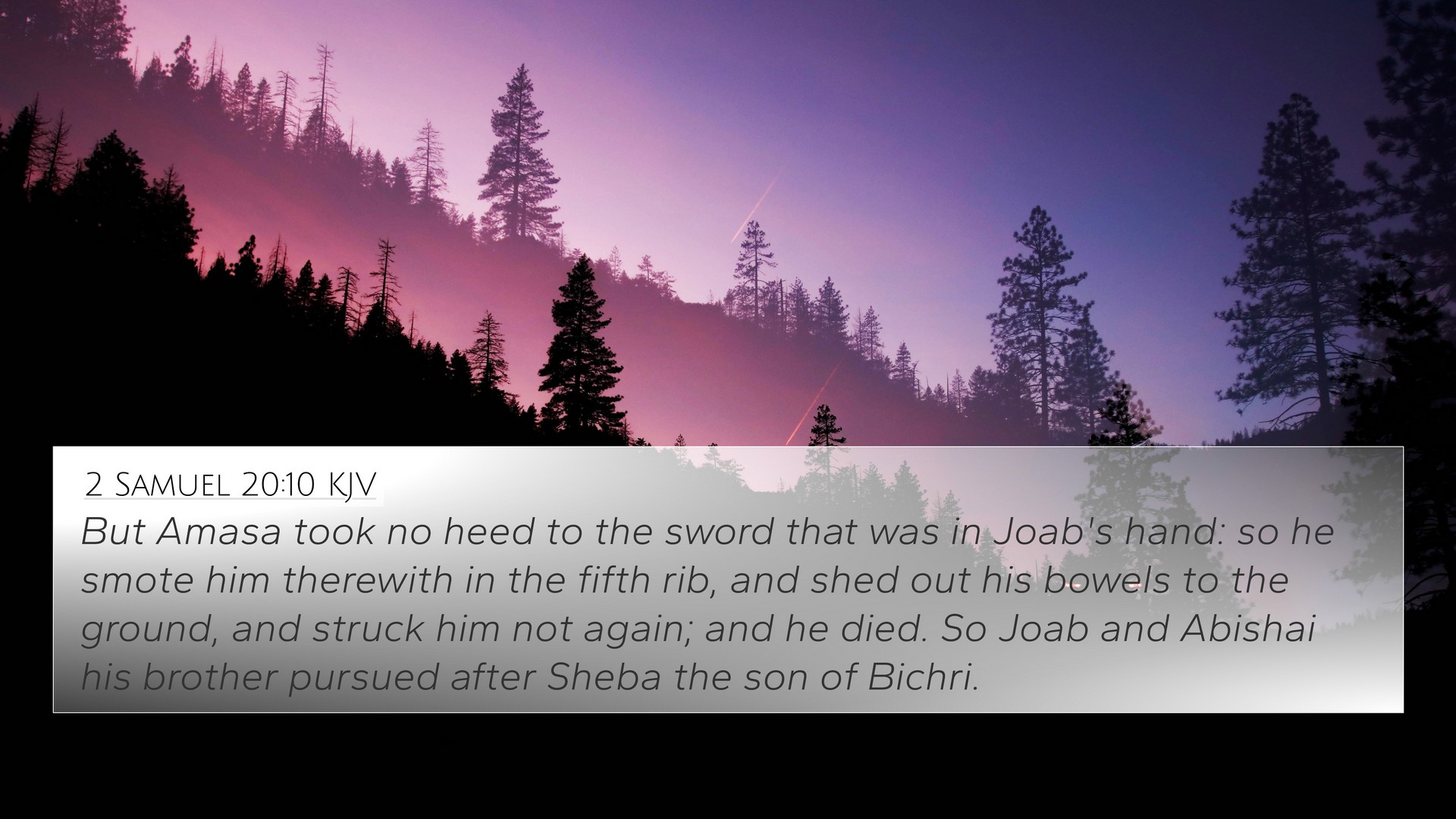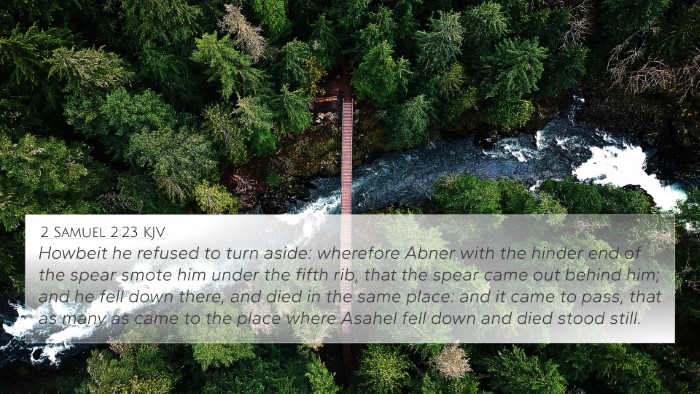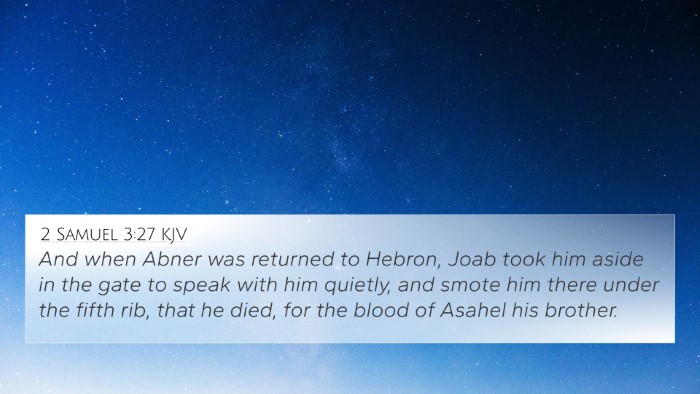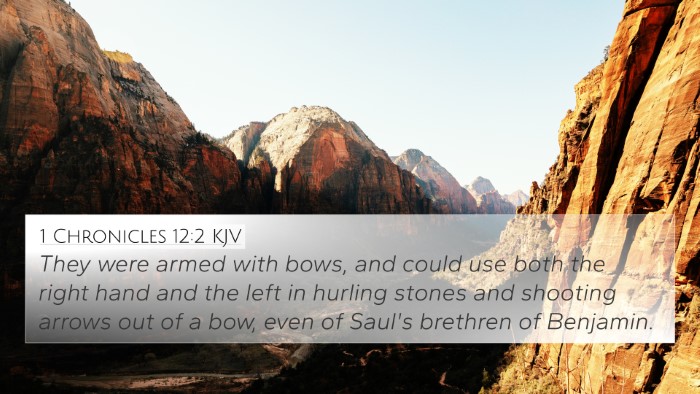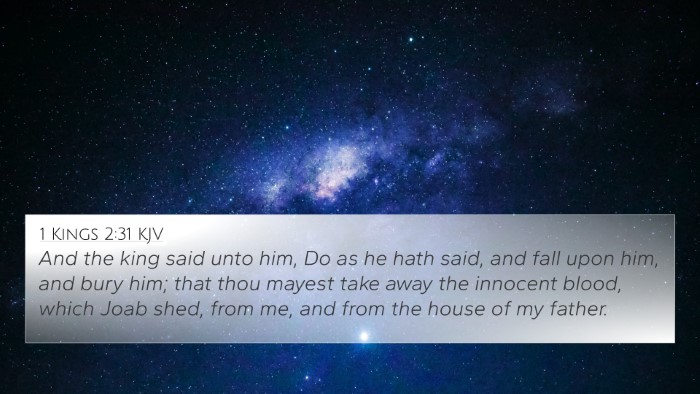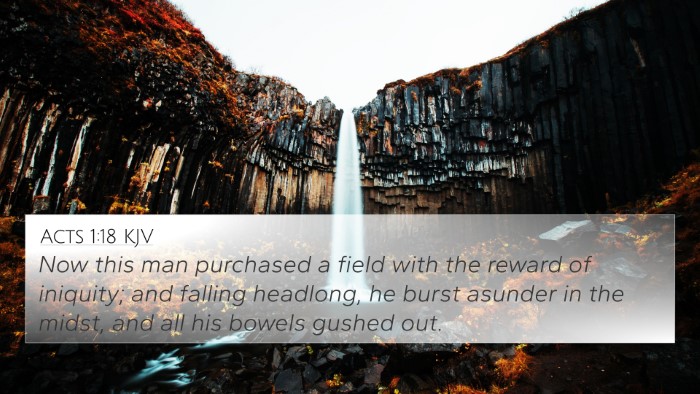Understanding 2 Samuel 20:10
Verse: “But Amasa took no heed to the sword that was in Joab's hand: so he smote him therewith in the fifth rib, and shed out his bowels to the ground, and struck him not again; and he died. And Joab and Abishai his brother pursued after Sheba the son of Bichri.”
Summary of Meaning
This verse depicts a pivotal moment in the conflict between Joab and Amasa, illustrating themes of betrayal, ambition, and the brutal nature of political power struggles in ancient Israel.
-
Betrayal and Political Dynamics: Joab’s action against Amasa is often interpreted as a betrayal. Though Amasa had previously been appointed by David, Joab’s continued loyalty to the king leads him to eliminate a rival. This reflects the often treacherous dynamics of leadership and rivalry within the biblical narrative.
-
Fatal Consequences of War: The violent death of Amasa highlights the tragic outcomes of unrest and civil strife, drawing parallels to other violent upheavals in Israel’s history, such as the rebellion of Absalom (2 Samuel 15-18).
-
Joab's Character: Joab is portrayed as a complex character, both a loyal commander and a ruthless politician. His decisive action in eliminating Amasa underscores his willingness to secure his position at any cost. This complexity invites further study into character motivations throughout the scriptural texts.
Cross-References for 2 Samuel 20:10
Understanding this verse becomes richer through biblical cross-references that illuminate similar themes and events:
- 2 Samuel 3:30: Joab's murder of Abner signifies the deadly rivalry within David's kingdom.
- 2 Samuel 15:10: Absalom's rise demonstrates how ambition leads to treachery against God’s anointed.
- 2 Samuel 18:14: Joab’s decisive nature is exhibited again in the death of Absalom.
- 1 Kings 2:5-6: Joab’s actions catch up with him, as Solomon ultimately executes him for his treachery.
- Proverbs 13:15: Reflects that the way of the unfaithful is hard, echoing the consequences of deceit and violence.
- Matthew 26:50: The betrayal of Jesus by Judas evokes similar feelings of betrayal explored in Joab’s interaction with Amasa.
- Galatians 6:7: "For whatsoever a man soweth, that shall he also reap," reinforcing the theme of consequences for one’s actions.
Thematic Connections
2 Samuel 20:10 reflects deeper thematic connections in the Bible, especially regarding:
- The Nature of Leadership: Both the Old and New Testaments investigate what makes a leader righteous versus treacherous.
- The Cost of Ambition: Numerous biblical characters face dire consequences as a result of their ambitions, drawing parallels to Joab’s ruthless actions.
- Divine Justice versus Human Retribution: The interplay between God’s sovereignty and human actions is a recurring motif in biblical narratives.
Comparative Bible Verse Analysis
When performing a comparative Bible verse analysis, one might look at:
- How Joab’s character development parallels figures like Saul, who act out of jealousy and fear.
- Connections between the consequences seen in Joab’s life and other tragic figures in the Bible who embraced sin.
Scriptural Cross-Referencing for Sermon Preparation
For pastors and bible study leaders, utilizing cross-referencing methods enhances the teaching experience:
- Identification of Patterns: Recognizing repeating themes of betrayal and ambition across the scriptures can provide depth to sermon content.
- Link to New Testament Teachings: Sermons can draw parallels between Old Testament treacherous actions and New Testament fulfillments in Christ.
Conclusion
The narrative of 2 Samuel 20:10 serves as a critical reminder of the complexities of biblical leadership, the consequences of ambition and betrayal, and the intricate web of inter-Biblical dialogues that enrich our understanding of God’s word. By engaging with cross-referencing tools and highlighting thematic connections, individuals can uncover significant insights that offer deepening knowledge of scripture’s lessons, applicable to both historical and modern contexts.
